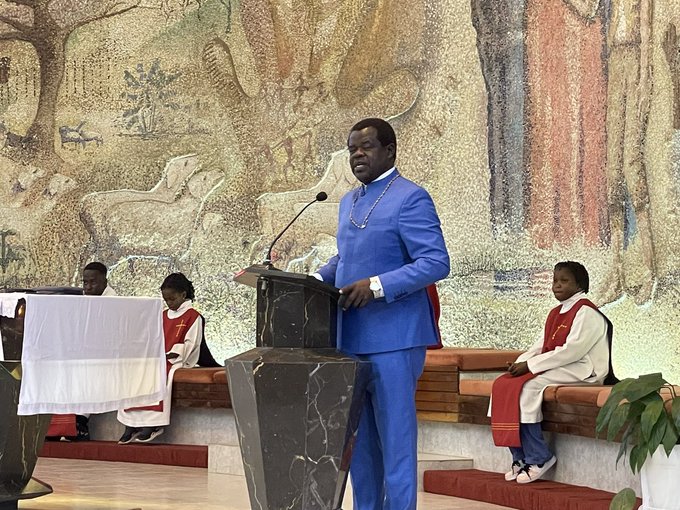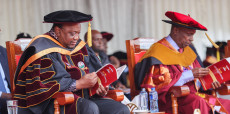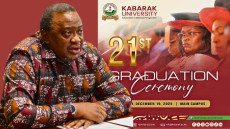- In a political landscape where branding often supersedes substance, symbols become potent tools of influence. Okiya Omtatah’s consistent donning of the Rosary, a sacred Catholic symbol, is no coincidence. This act may seem insignificant to many but carries profound implications, especially in a country like Kenya with an estimated 18 million baptized Catholics.
In a political landscape where branding often supersedes substance, symbols become potent tools of influence. Okiya Omtatah’s consistent donning of the Rosary, a sacred Catholic symbol, is no coincidence. This act may seem insignificant to many but carries profound implications, especially in a country like Kenya with an estimated 18 million baptized Catholics.
The Rosary is not just a necklace! It is a bold declaration of faith and allegiance to the Catholic Church. This symbolic gesture could significantly shape Omtatah's political journey and perpetuate potential implications on Kenya’s religious and political dynamics.
Omtatah’s choice to prominently wear the Rosary since declaring his presidential aspirations is a calculated move. For devout Catholics, the Rosary is more than an accessory—it is a representation of their identity, devotion, and spiritual journey. By aligning himself with this symbol, Omtatah is sending a clear message that he is one of them, a leader who embodies &respects their faith.
Statistically, Catholics represent a significant demographic in Kenya, with 18 million baptized members. Assuming half of the population is eligible to vote, Catholics could constitute a substantial voting bloc of approximately 9 million. Narrowing it further to the devout about 4.5 million voters—this group alone could form the backbone of a candidate’s support base.
The ongoing tension between the Catholic Church and the state could further galvanize this religious electorate. If the state is perceived as antagonistic toward the Church and its faithful, Omtatah stands to benefit as a rallying point for Catholic solidarity.
Read More
Churches, from local parishes to national cathedrals, wield significant influence. Sermons, gatherings, and forums offer unrivalled platforms for discourse and clergy are unlikely to oppose a candidate who visibly and vocally champions their faith.
Beyond the congregation, the Catholic Church is also an institution with considerable financial resources and organizational reach. Contributions from congregants and endorsements from clergy could provide Omtatah with a competitive edge, both financially and in terms of visibility.
Omtatah’s Rosary is more than a religious symbol it is a political strategy. By openly displaying his faith, he positions himself as a unifying figure for Kenya’s Catholic population. This move is as much about securing votes as it is about embodying a leadership style rooted in faith and morality.
While detractors may dismiss Omtatah as a “poor” candidate, the power of symbolism, especially one as deeply entrenched as the Rosary, should not be underestimated. As Kenya heads into a contentious political season, the interplay between religious allegiance and political ambition will undoubtedly shape the narrative and Omtatah’s Rosary may yet prove to be his most powerful campaign tool.





-1766009103-md.jpeg)





-1766009103-sm.jpeg)
